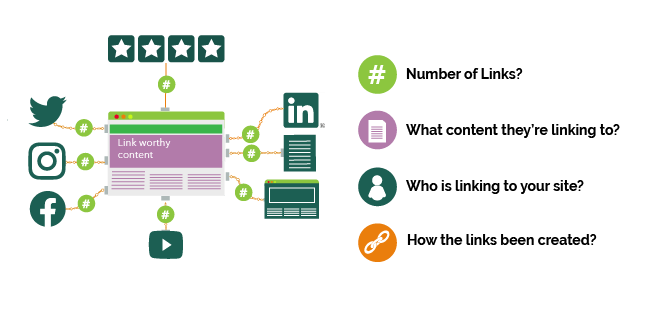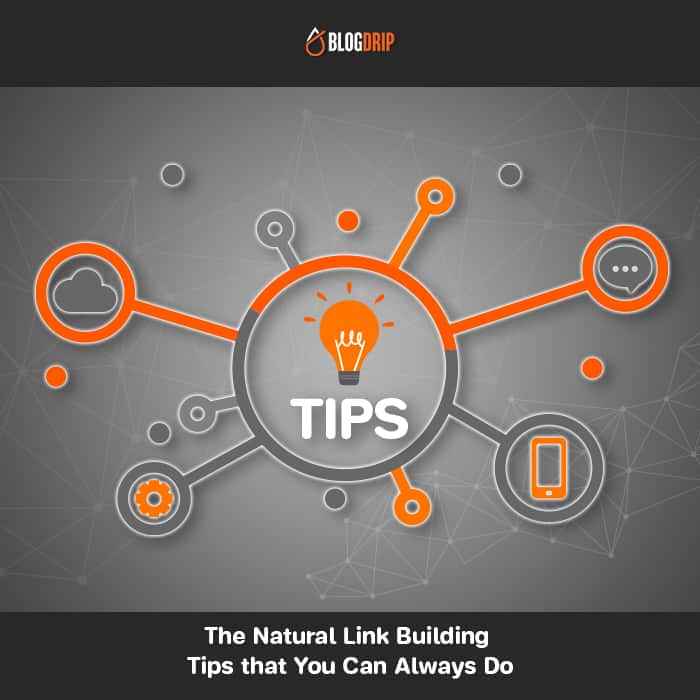Unlock the mystery of natural links and discover how they can boost your website’s SEO and credibility. Learn more now!

Image courtesy of via DALL-E 3
Table of Contents
Introduction to Natural Links
Today, we are going to explore the fascinating world of natural links and why they play a crucial role in the success of websites. So, what exactly are natural links and why are they essential for websites and SEO?
What is a Natural Link?
Let’s start with the basics. Imagine you have a favorite website, and you think it offers amazing content that others should see. When you decide to share that website’s link on your own site without being paid or asked to do so, that’s what we call a natural link! It’s like giving a shout-out to a friend because you genuinely appreciate what they do.
Why Are Natural Links Important?
So, why do these natural links matter so much? Well, when a website gets natural links from other sites, it’s like getting a vote of confidence or a recommendation. Search engines like Google see these links as a signal that the content is valuable and trustworthy, which can help the website rank higher in search results. This process is called Search Engine Optimization (SEO), and natural links are a vital part of it.
How Do Natural Links Work?
In the world of websites and SEO, natural links play a crucial role in determining a site’s credibility and visibility. But how exactly do natural links function? Let’s delve into the mechanics of these links and understand their impact.
Backlinks and Reputation
Natural links, often referred to as backlinks, serve as virtual recommendations or referrals from one website to another. When a website includes a link to another site within its content, it signals to search engines that the linked website is credible and valuable. This helps to boost the linked site’s reputation and authority, making it more likely to rank higher in search engine results pages.
Improving Search Rankings
Search engines like Google view natural links as a vote of confidence in a website. The more high-quality natural links a site receives from reputable sources, the more likely it is to climb up the search rankings. This is because search engines consider these links as indicators of relevance and trustworthiness, ultimately benefiting the linked site’s SEO performance.
Ways to Earn Natural Links
When it comes to improving your website’s SEO and gaining more online visibility, natural links play a crucial role. These are links that are earned organically, without any payment or solicitation. Here are some effective ways to earn natural links for your website:

Image courtesy of murraydare.co.uk via Google Images
Creating Quality Content
One of the best ways to attract natural links is by creating high-quality, engaging content that provides value to your audience. When other websites see the value in your content, they are more likely to link back to your site. Focus on writing informative articles, creating helpful guides, and sharing useful resources that others will want to reference.
Using Social Media
Social media platforms are excellent tools for promoting your content and attracting natural links. By sharing your articles, videos, and infographics on platforms like Facebook, Twitter, and LinkedIn, you can reach a wider audience and encourage people to link back to your website. Engage with your followers, participate in conversations, and build relationships with other users to increase the chances of getting natural links.
Guest Blogging
Another effective way to earn natural links is by guest blogging on other websites within your industry. By writing guest posts that provide valuable insights and information, you can showcase your expertise and attract links back to your own site. Look for reputable websites that accept guest contributions and start pitching your ideas to expand your online presence.
Differences Between Natural Links and Paid Links
Paid links are links that websites purchase to artificially boost their search engine rankings. These links are not obtained organically but rather through payment to other websites or link-building services.
The Downside of Paid Links
Search engines like Google discourage the use of paid links because they can be seen as spammy and manipulative. If search engines detect that a website is using paid links to improve its rankings, it can result in penalties such as lower search visibility.
Being Ethical with SEO
It is crucial to follow ethical SEO practices and focus on earning natural links through the creation of high-quality content and engaging with your audience. By avoiding paid links and focusing on ethical strategies, websites can build a strong and sustainable online presence.
Tools to Find Natural Links
Analytics tools are essential in tracking natural links and referral traffic to your website. One of the most popular tools for this purpose is Google Analytics. This tool provides valuable insights into where your traffic is coming from, including which websites are linking back to yours. By analyzing this data, you can identify which natural links are driving the most traffic and adjust your strategies accordingly.

Image courtesy of www.techmagnate.com via Google Images
SEO Software
Specialized SEO software can be highly beneficial in analyzing backlinks and improving your natural link building strategies. These tools can provide detailed reports on the quality of your backlinks, helping you identify potential opportunities for new natural links. Additionally, SEO software can track changes in your backlink profile over time, allowing you to monitor the effectiveness of your link building efforts.
Stories and Examples
Let me tell you about Sarah, a passionate blogger who started her own blog about healthy eating. Sarah dedicated time and effort to creating high-quality content that provided valuable information to her readers. As a result, many other health and wellness websites began to notice Sarah’s blog and started linking back to her articles. These natural links not only boosted Sarah’s blog’s credibility but also helped her content reach a wider audience. Soon enough, Sarah became a successful influencer in the health and wellness community, all thanks to the power of natural links!
Case Study 2: Small Business Growth
Imagine a small family-owned bakery, like Lucy’s Cakes, trying to establish an online presence. Lucy decided to focus on creating an engaging website with delicious photos of her cakes and pastries. By sharing her website and engaging with baking communities on social media, Lucy attracted natural links from food bloggers and local websites. These links acted as endorsements for Lucy’s bakery, leading to increased online visibility and a growing customer base. Thanks to the natural links, Lucy’s business flourished, showing that even small businesses can benefit greatly from the phenomenon of natural linking!
Tips for Beginners
If you’re just beginning to explore the world of natural links, one of the simplest and most effective ways to attract them is to start a blog. By writing about topics that interest you and sharing valuable information, you can naturally attract links from other websites. Remember, quality content is key!

Image courtesy of www.linkedin.com via Google Images
Engage with Your Community
Another great way to kickstart your journey in earning natural links is to engage with online communities. By participating in discussions, sharing your expertise, and providing helpful insights, you can build relationships within your community. In return, you may receive natural links as others recognize your valuable contributions.
Common Mistakes to Avoid
One common mistake to avoid when trying to earn natural links is getting involved with link farms. Link farms are groups of websites that artificially create links to each other to manipulate search engine rankings. This practice goes against the guidelines set by search engines and can result in penalties for your website. It’s essential to focus on building genuine and relevant links from trusted sources rather than resorting to link farms.
Don’t Over Optimize
Another mistake to steer clear of is over-optimizing your anchor text for links. Anchor text is the clickable text in a hyperlink, and while it’s crucial for SEO, using the same keyword-rich anchor text excessively can make your links appear unnatural. Search engines are constantly evolving, and they can detect when links are manipulated. Ensure your anchor text is diverse, natural, and relevant to the content it’s linking to. By avoiding over-optimization, you can maintain the authenticity and effectiveness of your natural links.
Summary
In conclusion, natural links play a vital role in the world of SEO and website rankings. These links are essentially referrals from one website to another, created without payment or solicitation. Natural links are crucial for improving a site’s credibility and reputation, which in turn helps websites rank higher on search engine results pages.

Image courtesy of blogdrip.com via Google Images
Recap of Natural Links
Natural links, also known as backlinks, are essential for websites looking to boost their SEO. By earning high-quality natural links, websites can establish themselves as authoritative sources in their respective industries and improve their visibility online.
Key Takeaways
When it comes to earning natural links, creating quality content, utilizing social media, and engaging in guest blogging are effective strategies. It is imperative to differentiate natural links from paid links and prioritize ethical SEO practices to avoid penalties from search engines like Google. By using tools like analytics software and implementing beginner tips, websites can track and increase their natural links, ultimately leading to online success. Remember, avoiding common pitfalls like link farms and over-optimizing anchor text is crucial for a sustainable natural link building strategy.
Want to turn these SEO insights into real results? Seorocket is an all-in-one AI SEO solution that uses the power of AI to analyze your competition and craft high-ranking content.
Seorocket offers a suite of powerful tools, including a Keyword Researcher to find the most profitable keywords, an AI Writer to generate unique and Google-friendly content, and an Automatic Publisher to schedule and publish your content directly to your website. Plus, you’ll get real-time performance tracking so you can see exactly what’s working and make adjustments as needed.
Stop just reading about SEO – take action with Seorocket and skyrocket your search rankings today. Sign up for a free trial and see the difference Seorocket can make for your website!
Frequently Asked Questions (FAQs)
What is the Difference Between Natural Links and Paid Links?
Natural links are links that are created when one website links to another without being paid or asked to do so. These links are genuine endorsements of the linked content. On the other hand, paid links are links that are acquired through monetary transactions, where a website pays another site to link to them. The key difference is that natural links are organic and based on merit, while paid links are artificial and can be seen as manipulative in the eyes of search engines.
How Can I Get More Natural Links?
If you want to earn more natural links for your website, focus on creating high-quality content that others find valuable and want to share. Write engaging blog posts, create informative videos or graphics, and share them on social media platforms to attract natural links. Additionally, consider guest blogging on reputable sites in your niche to reach a wider audience and earn more backlinks. Engaging with your online community and networking with other website owners can also lead to natural link opportunities.







